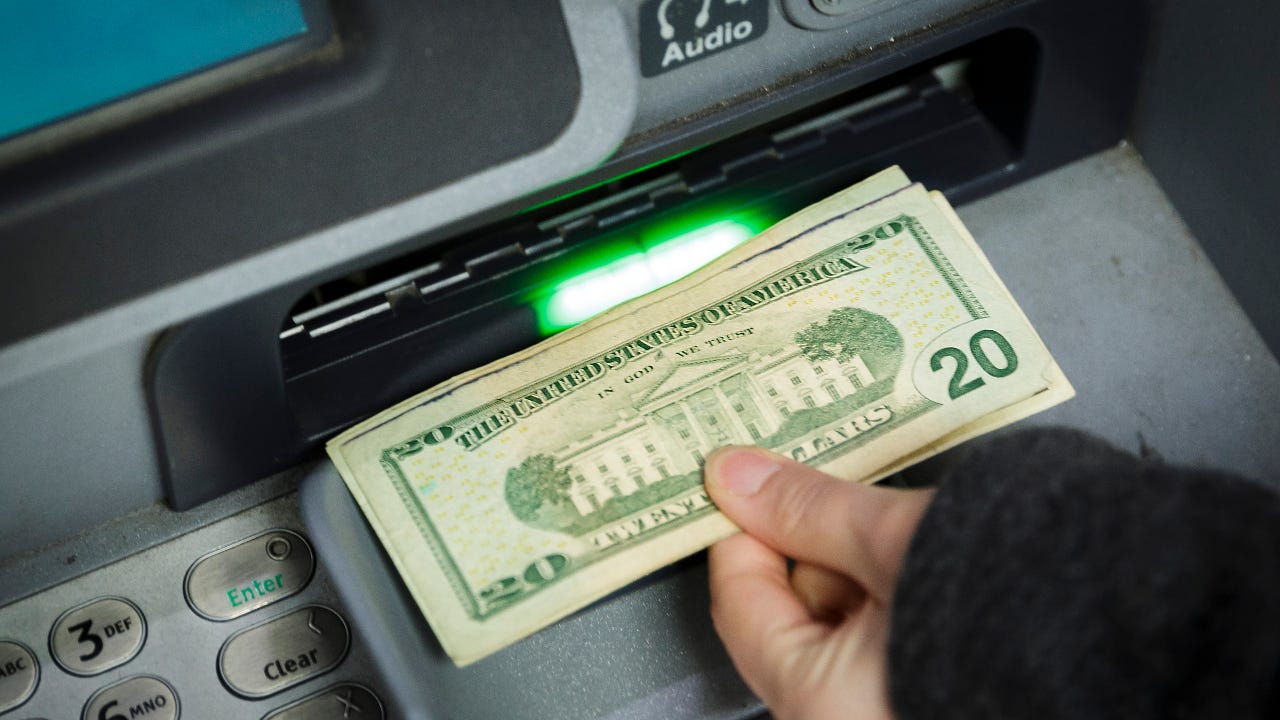Getting paid early by a bank may be a better alternative than using a pay advance app

Many Americans are struggling to stay on top of their various financial obligations, and if payday doesn’t align with urgent expenses, that could throw a wrench into day-to-day stability.
A recent Bankrate survey found that a large majority (72 percent) of U.S. adults say they are not financially secure. That means many may turn to potentially costly options, like cash advances or payday loans, to meet necessary expenses.
Companies such as EarnIn and Even make it possible to get advanced access to wages, sometimes called early wage access. But critics and consumer advocates say these programs can be harmful for people constantly falling behind on bill payments.
One alternative may be early direct deposit, a feature becoming more popular among banks and credit unions.
How early wage access works
Early wage access programs seek to solve the problem of having to wait two weeks to get paid, a big issue for frequent overdrafters and consumers living hand to mouth. The idea is to get a portion of your take-home pay in advance, before your paycheck is scheduled to arrive. When your paycheck finally comes, however, you’ll have less money at your disposal.
Terms and conditions vary depending on the way a program is set up. In some cases, fees are charged. Others may ask for optional tips. There may also be rules controlling how often you can get access to part of your check before payday.
A 2021 report by the Financial Health network stated that of those who used early wage access programs, more than 70 percent of them took advances consecutively. Issues that arise are similar to those faced by consumers burdened by payday lenders, says Lauren Saunders, associate director of the National Consumer Law Center (NCLC).
“They are better than a payday loan,” Saunders says. “The cost is lower. They don’t engage in the same harassing, debt collection activities. But they have a lot of the same problems: a balloon payment that leaves you in a bad position, fees that add up and overdraft or non-sufficient funds (NSF) fees for those services that debit the bank account.”
Others agree that the programs, though convenient, can make a difficult financial situation worse for consumers who struggle with managing their finances.
“The relief may be short-term, and I use the term palliative, meaning it doesn’t get to the underlying problem that people often have and it can result in just falling further behind if nothing else changes,” says Corey Stone, entrepreneur in residence at the Financial Health Network.
Risks of early wage access
Fintechs promising early wages can be invaluable to consumers who need to cover expenses before payday, but there are hidden costs to using these services — and in some cases, those costs have gotten the fintechs in trouble.
EarnIn owed $3 million in a 2021 class action lawsuit settlement for not disclosing to users that it would withdraw funds from their accounts even when there were not enough, triggering costly NSF and overdraft fees. The company has been investigated by others, including the New York Department of Financial Services.
In March 2023, the U.S. Government Accountability Office released a report detailing some of the problems and risks associated with early wage access. It points out a few potentially unforeseen charges, which fintechs may not be upfront about:
- Monthly subscription fee to use the service
- Fees for making a cash advance transfer
- Expedited transfer fees
- Tips
Two other concerns the report highlights are the potential for dependence on early wage access and inaccurate wage estimations. To the first point, if consumers become dependent on early wage access to cover daily expenses, they may need to then take out more advance funds to pay off previous advances. Meanwhile, if wages are inaccurately estimated, that could make it difficult for users to repay their advances on time.
Use early wage access responsibly
Consumers who want to use early wage access programs should consider the consequences of doing so.
“Think twice about whether you’re going to be able to handle the next pay period if there’s a hole in your paycheck,” Saunders says. “Wean yourself off of it. Take out less if you need to the next time.”
It’s best to refrain from using the services often and to reserve them for emergency situations only. Better yet, try to grow an emergency fund. Start by putting away a portion of your income in a high-yield savings account that you can tap into, if needed, without paying fees or getting caught up in a debt cycle.
Consider an alternative like early direct deposit
Another option is to open an account at a bank that offers early direct deposit. With this feature, banks and credit unions can usually provide full paychecks up to two days early. Prepaid debit card providers offer early direct deposit, too. Some — like Green Dot and Walmart’s MoneyCard — note that government benefits may be accessible up to four days early.
Typically, there’s a delay between when a deposit arrives at a bank and when those funds are made available. There’s no risk or additional cost for the bank to make those funds accessible to customers immediately, says Stone from the Financial Health Network. There aren’t any risks for consumers either and no additional fees besides any attached to the bank account itself.
Early direct deposit is offered by challenger banks like Varo and Chime and credit unions like Randolph-Brooks Federal Credit Union and the United States Federal Credit Union.
While early direct deposit is somewhat less flexible than early wage access, it still allows consumers to access their paycheck earlier than they typically would and make any urgent payments.
Just be sure to account for the fact that your new paycheck schedule will fall on different days. The timing of funds hitting your account can vary from paycheck to paycheck. Establish a clear budget that accommodates for fluctuations by keeping track of when monthly expenses are due and prioritizing essential bills, such as rent, utilities and loan payments.
– Bankrate’s René Bennett contributed to an update of this story.
Why we ask for feedback Your feedback helps us improve our content and services. It takes less than a minute to complete.
Your responses are anonymous and will only be used for improving our website.
You may also like

Payday loan alternatives that could save you money





